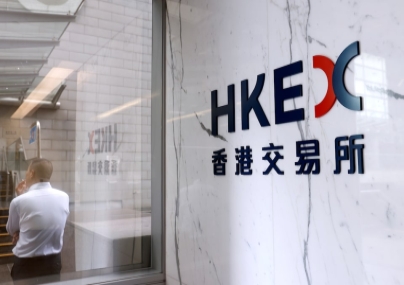
过去几年,中国环境、社会、治理领域(ESG)规则日益健全,ESG相关法律服务也日渐成长为单独的律所业务板块。目前,ESG法律服务正出现“行业化”趋势,其对律师的创新能力、综合判断也提出了更高要求。
如果说2020年9月“双碳”目标的提出推动中国进入了“ESG时代”,2023年,中国则迎来了“ESG标准年”。从国资委,到证监会及各大证券交易所,针对不同类型企业的ESG披露、管理等规定不断出台,促使“ESG从选择题变成了必答题”。
观韬中茂(上海)律师事务所合伙人蒋则谢律师已为客户提供多年ESG相关法律服务,他观察到:“ESG是一个比较大的概念,近几年由于相关政策和法规的持续推动,逐渐形成了一个单独领域。”由于入局早、ESG服务布局广泛,观韬中茂面对的客户及其行业也较为多元化,而就蒋律师涉及的绿色减排交易而言,“客户会相对集中在如能源、科技和金融行业”。
伴随行业性ESG规则逐渐落地、ESG服务日益成熟,律师们观察到,ESG法律服务领域也逐渐出现“行业化”趋势,“主要原因在于ESG包括环境、社会、治理三大议题,而这些议题对不同行业的影响侧重不同,客户开始要求律师根据自身行业特点,提供更有针对性的ESG报告、合规等服务”,通商律师事务所合伙人万兴律师解读道。
石林、王晓栋律师是世辉律师事务所服务于ESG领域的合伙人,他们也观察到,随着ESG理念和实践不断发展,“各行业在ESG领域的探索和实践逐渐呈现与行业发展特点相结合的差异化趋势,相应的,世辉提供的ESG法律服务也根据客户所处行业略有差异”。
凸显创新性
在ESG这一较新的法律服务领域,律师们坦言,他们经常会陪伴客户遇到“市场首创性”项目或交易,这对律师的能力提出挑战,也是他们服务于ESG领域的乐趣所在。
2023年,中国在六年停滞后重启自愿碳减排市场,相关新法规密集落地,中国核证自愿减排项目(Chinese Certified Emission Reduction,CCER)再次成为备受市场关注的话题。
这让观韬中茂的蒋则谢律师回忆起在此前的市场停滞期,他和团队帮助客户应对的一项挑战。“2017年发改委实质暂停CCER项目审批后,境内不少开发机构转型成为境外标准——如VCS(Verified Carbon Standard,核证碳标准)和GS(Gold Standard,黄金标准)的开发者,当时我们顺应市场需求,开始应对不同标准甚至是不同法域的问题。”
2023年初,VCS的管理组织突然停用水稻方法学并暂停签发水稻项目,引发一系列项目违约。当时,大量VCS水稻项目位于中国,买家则是各大发达经济体的能源或化工巨头,“导致水稻项目的交易文件五花八门,且适用不同的法律。为此,我们参考了跨境交易中常见的多司法辖区分析模式,通过分析不同法域对同一事实的法律认定,并充分考虑到可执行性和援引不可抗力条款的问题,在短时间内给到了客户尽可能全面,且具有商业合理性的分析”。
“在应对这类市场上几乎无先例可循且牵扯不同司法辖区的复杂问题时,在理解客户商业需求的基础上,运用成熟法律产品的呈现模式去提供服务,才能够给予客户实质性帮助。”蒋律师说。
面对全新启动的CCER市场,通商的万兴律师则表示,他和团队已经率先投入到了相关交易之中,例如近期在协助某碳科技公司投资CCER项目,“要帮助客户确定所投项目是否属于首批公布的造林碳汇、并网光热发电、并网海上风力发电、红树林营造四个方法学之一;所投项目在额外性等方面是否合规;项目权属是否有瑕疵;所投项目涉及第三方担保时如何保障客户投资的安全性等……几乎都是创新性议题”。
此外,“如果是通过环境交易所展开碳交易,交易所通常会提供固定格式合同,但其中的条款可能远远相当程度不足够,需要律师在项目中为客户构建设计详细的碳交易合同,并为项目做出具体的落地安排,这也有很强的创新性”,万律师说。
在天元律师事务所管理合伙人任燕玲律师看来,ESG法律服务具备极强的综合性,这本身就是富有挑战并有创新机遇的工作。任律师介绍道,天元多年来为建筑、能源、汽车、金融、互联网等诸多行业客户提供全方位的合规服务,积累了深厚的为企业ESG全流程服务的经验。
综合性ESG服务至少包含九大方面,律师均可以深耕其中提供法律服务。“第一,协助客户制定ESG战略规划,构建内部ESG合规管理体系,特别需要结合客户实际情况、经营管理模式、行业特点等展开规划;第二,协助客户合规履行ESG信息披露义务,需要协助客户识别披露要求、确定披露议题、识别利益相关方等,并把控信息披露的一致性、完整性及真实性;第三,提供ESG尽职调查服务,尤其在投资与并购交易及供应链管理事宜中判断交易对手在环境保护、安全生产、劳动用工等方面的合规表现,规避ESG风险。”
“第四,提供ESG相关争议解决服务,包括但不限于环境公益诉讼、环境污染刑事案件、劳动仲裁/诉讼、环境信息公开诉讼等;第五,提供ESG合规审查和风险评估服务,例如对污染事故、职业健康、安全生产、劳动用工、气候变化等潜在风险进行识别,出具风险评估报告并提出合规建议或改进措施;第六,为客户实施改进措施提供全流程法律服务,例如在节能改造项目中,提供方案评估、项目审批、施工改造、竣工验收等全流程法律服务。”
“第七,与其他专业机构共同协作,协助客户编制ESG报告,填写CDP问卷等;第八,提供ESG培训,并帮助客户定期更新ESG政策法规库;最后,提供绿色金融及乡村振兴的法律服务,例如参与发行绿色公司债券,为可持续基金的募投管退提供法律服务、服务碳中和企业、乡村振兴项目等。天元曾助力中建西安幸福林带建设投资有限公司发行PPP项目绿色资产支持专项计划,、协助电投信能基金参与一系列与国电投集团 的并购合作,收购全国范围内多家新能源发电企以及协助长电国际完成中国-秘鲁ESG、能源电力监管等领域法律监管比较研究报告。天元还为比亚迪、国家能源集团、中广核风电公司、中国纳泉能源科技控股有限公司、圣元环保股份有限公司、绿色动力环保集团股份有限公司等数十家环保企业提供法律服务。”
就此,世辉的石林、王晓栋律师也介绍了自身参与企业ESG综合性服务的经历。“我们曾为大型国有能源公司提供合规管理体系建设服务。在项目中,通过了解传统企业的业务模式,协助其优化一体化的运营模式,并通过搭建和完善合规管理体系,帮助企业高效识别、评估和应对相关合规风险,包括与环境保护、社会责任等相关的风险,与ESG中的治理维度相契合,有助于提高其管理水平,提高运营效率和降低风险。”
有潜力的领域
ESG领域发展日新月异、法律服务需求不断增多,但律师们坦言,目前客户需求依旧比较分散,导致市场开拓效率不高,ESG业务在律所整体营收中占比较小。“作为新兴领域,通常律师的议价能力和客户的付费意愿都更高,但短期内客户对服务需求的绝对量无法与传统业务相比较。”蒋则谢律师坦言。
不过,律师们十分看好ESG领域的长期发展前景。
万兴律师主要从市场需求端思考这个问题,他指出,不同类型市场主体的ESG需求都在增长之中。“首先是上市公司,面临越来越普遍的ESG披露和报告要求,他们相应也有更多的ESG合规需求;其次是非上市公司,例如国企,被寄予了引领ESG发展的期待;第三是民营公司,尤其伴随越来越多中国企业走出去,他们开始面临更多的海外ESG合规压力。”
“此外,PE及VC投资机构近年也越来越多地把ESG因素纳入投资决策之中,需要律师在投资并购项目中展开ESG尽调;金融机构也有越来越多的绿色金融项目,例如绿色债券发行等需求。”
“中国的3060双碳目标,以及国际层面的目标和承诺都是长期规划,我们预测,ESG相关法律业务相应会有比较稳定的增长,伴随律师能力的积累,未来会有更多的服务机会。另外,目前市场也存在信息不对称的情况,企业以为‘四大’才是提供ESG服务的主力军,因此律师界要积极向市场传达我们的能力、经验、对行业和境内外合规监管尺度的把握等,表明我们在提供ESG服务方面具备诸多优势。”万律师说。
蒋则谢律师则从律所业务发展规律角度解读这个问题:“各大律所始终鼓励提前布局新兴领域,这也是律师在存量市场寻求突破的方式。如果要做类比,数据合规领域具有很高的参考性。虽然短期内回报有限,如果长期看好ESG及绿色经济服务领域,目前的投入均是值得的。”
石林、王晓栋律师也指出,世辉将在ESG领域进行持续投入,为了更好地平衡在该领域的投入与回报,他们将采取如下策略:“第一,做好市场定位与专业化服务,尤其专注为国企、互联网及高科技等特定行业的客户提供专业化法律服务,增强创收能力;第二,创新合伙人分配制度,通过设立专门的业绩考核指标或奖励机制,鼓励合伙人积极开拓市场。”
“第三,建立合作伙伴关系,与其他专业服务机构、行业协会、非政府组织等共同推广ESG及绿色经济服务。通过合作扩大市场影响力,提高品牌知名度,吸引更多潜在客户。”两位律师说。
ESG: GREEN POTENTIAL
In recent years, China has significantly strengthened its environmental, social, and governance (ESG) regulations. Consequently, ESG-related legal services have evolved into a distinct area of practice within law firms. Presently, ESG legal services are becoming more industry-specific, which elevates the requirements for lawyers to demonstrate innovative thinking and comprehensive judgment.
In September 2020, the announcement of China's "carbon peaking and carbon neutralization" objectives heralded the nation's entry into the "ESG era." By 2023, China had firmly entered the year of "ESG standards."
Influential bodies such as the State-owned Assets Supervision and Administration Commission, the China Securities Regulatory Commission, and key stock exchanges have all introduced a series of ESG disclosure and management rules targeting various company types, making ESG compliance mandatory rather than voluntary. "Against this backdrop, different industries have begun to implement their own ESG policies," notes Ren Yanling, managing partner at Tian Yuan Law Firm.
Dante Jiang, a Shanghai-based partner at Guantao Law Firm with many years of experience advising on ESG-related legal issues, observes, "ESG is a broad concept that has become a distinct area of practice in recent years, driven by a steady stream of relevant policies and regulations." Guantao Law Firm, with its early involvement in the field and comprehensive ESG service offerings, caters to a diverse client base across various industries. Jiang, who specializes in green emission reduction trading services, typically works with clients concentrated in sectors such as energy, technology, and finance.
As the implementation of industry-wide ESG regulations advances and the demand for sophisticated ESG services grows, lawyers are recognizing a trend toward more industry-specific ESG legal services. "The reason for this shift is that ESG encompasses three main areas—environmental, social, and governance—which affect industries in unique ways. Clients are increasingly seeking tailored ESG reporting, compliance, and advisory services that align with the specific needs of their industries," says Wan Xing, a partner at Commerce & Finance Law Offices.
Wan provides insight into two sectors. The first is the biotechnology industry, in which he specializes. "Regarding environmental concerns, drug manufacturing is intimately connected to chemical use and carbon emissions. Leading global pharmaceutical companies have been focusing on low-carbon production, a topic that was highlighted during their executives' visits to China this year. On the social front, bioethics is a significant issue for biotech firms."
Moreover, on April 12, the Shanghai, Shenzhen, and Beijing Stock Exchanges each issued their own sustainable development reporting guidelines, set to take effect on May 1. These documents address the growing emphasis on ESG reporting and are likely to place additional pressure on biotech and other industries. "The Hong Kong Stock Exchange introduced ESG reporting guidelines earlier, and domestic biotech companies aiming to list in Hong Kong are required to disclose ESG information during the application process. We're assisting clients with meeting these obligations," Wan adds.
The consumer sector is another industry with a high demand for ESG compliance. Wan notes, "In terms of environmental impact, the greenhouse gas emissions from certain consumer sectors are significant. For instance, methane emissions in dairy production have become a global concern. Socially, consumer products face increased scrutiny over issues such as anti-unfair competition, brand reputation, data privacy, and more."
Shi Lin and Wang Xiaodong, partners at Shihui Partners with a focus on ESG services, have observed that as ESG concepts and practices continue to evolve, the approaches to ESG taken by various industries are diverging to reflect their unique development characteristics. Consequently, Shihui Partners tailors its ESG legal services to suit the specific sector in which a client operates.
For instance, in the Internet and high-tech industries, where data is a core asset, the demand for ESG legal services primarily revolves around data security and user privacy. These industries also prioritize ESG practices in corporate governance, supply chain management, labor, and employment. To meet these needs, Shihui Partners offers customized services, including the construction of compliance systems, training, investigations, and data compliance demonstrations for innovative business models.
State-owned enterprises (SOEs) represent another client group with distinct requirements. In recent years, the government has rolled out numerous policies encouraging SOEs to adopt and implement ESG principles. A significant portion of Shihui Partners' ESG clientele consists of SOEs, for which the firm provides services such as the development of compliance systems, training programs, and investigations.
HIGHLIGHTING INNOVATION
In the evolving field of ESG legal services, lawyers acknowledge that they frequently assist clients with pioneering "market-first" projects or deals. These ventures test their skills but also add to the excitement of delivering ESG advisory services.
In 2023, China reactivated its voluntary carbon emission reduction market following a six-year pause, introducing a raft of new regulations in quick succession. The Chinese Certified Emission Reduction (CCER) project has once again captured market interest.
Jiang reflects on a past hurdle his team helped clients navigate during the market's suspension. "When the National Development and Reform Commission halted CCER approvals in 2017, many domestic developers pivoted to working with international standards like the Verified Carbon Standard (VCS) and the Gold Standard (GS). We adapted to market needs by addressing issues arising from these various standards and jurisdictions."
Early in 2023, the management body of the VCS unexpectedly discontinued the rice methodology, halting the issuance of credits for rice projects and causing a cascade of project defaults. At the time, China hosted a large number of VCS rice projects, with primary buyers being energy or chemical conglomerates from leading developed countries. "The transaction documents for these rice projects were varied and subject to different legal frameworks. We employed a multi-jurisdictional analysis model, typically used in cross-border transactions, to deliver as comprehensive and commercially sound an analysis as possible in a brief timeframe. This involved examining the legal characterization of the same fact across different jurisdictions and thoroughly addressing enforceability and the potential invocation of force majeure clauses," recounts Jiang.
"When facing such intricate issues that lack market precedent and span multiple jurisdictions, our ability to truly assist clients hinges on understanding their commercial objectives and presenting our services as a polished legal product," Jiang concludes.
When discussing the newly relaunched CCER market, Wan explains that he and his team are at the forefront of pertinent transactions. They have recently been aiding a carbon technology firm in their CCER investments. Wan elaborates, "We assist our client in determining if the project they've invested in is part of the initial group of the four methodologies that have been released. We also ensure the project's compliance, check for any defects in project ownership, and safeguard the client's investment, especially when third-party guarantees are involved. Many of these issues were groundbreaking."
Ren points out that ESG legal services are exceptionally comprehensive, representing a significant innovation. Tian Yuan Law Firm, according to Ren, has offered a complete range of ESG compliance services to clients across various sectors—construction, energy, automotive, finance, and the internet—amassing extensive experience in full-process ESG services.
Ren continues to detail the breadth of ESG services, which encompass at least nine key areas: "Firstly, lawyers help clients craft ESG strategic plans and establish internal compliance management systems. Secondly, they ensure clients meet ESG information disclosure requirements. Thirdly, they conduct ESG due diligence, particularly during mergers, acquisitions, and supply chain management, to mitigate ESG risks."
"Fourthly, we provide resolution services for ESG-related disputes. Fifth, we conduct ESG compliance reviews and risk assessments. Sixth, we offer comprehensive legal services for clients to implement improvement measures. Seventh, we collaborate with other professionals to help clients prepare ESG reports and respond to CDP questionnaires. Eighth, we offer ESG training and maintain current ESG policy and regulation databases. Lastly, we facilitate green financial services, such as assisting with the issuance of green corporate bonds and serving carbon-neutralization companies."
PROMISING FIELD
The ESG sector is experiencing swift growth, and the demand for specialized legal services is on the rise. Yet, lawyers acknowledge that the current demand from clients is somewhat fragmented, leading to inefficiencies in business development. Consequently, ESG practices still represent a minor share of a law firm's total revenue. "As a nascent area, lawyers often have more leverage, and clients are generally more inclined to pay. However, in the short term, the actual volume of demand for ESG services doesn't match that of traditional practice areas," Jiang observes.
Despite this, lawyers remain positive about the long-term growth potential of ESG legal services.
Wan analyzes the situation from the perspective of market demand, noting that ESG requirements are expanding across various market participants. "Firstly, public companies are increasingly subject to ESG disclosure and reporting obligations. Secondly, state-owned enterprises are poised to be frontrunners in ESG development. Thirdly, private enterprises are starting to encounter more intense ESG compliance pressures abroad, particularly as more Chinese companies expand internationally."
Moreover, Wan points out that PE/VC investors are progressively integrating ESG factors into their investment decisions, necessitating ESG due diligence in investment and M&A activities. Financial institutions are also engaging in more green finance initiatives, like issuing green bonds.
"China's targets for carbon peaking and carbon neutrality by 2030 and 2060, as well as international goals and commitments, are indicators of a long-term strategy. We anticipate that ESG-related legal services will experience steady growth. Additionally, there's a prevalent information asymmetry in the market; companies often perceive the 'Big Four' accounting firms as the primary providers of ESG services. Therefore, the legal industry needs to proactively communicate to the market our strengths, such as our capabilities, experience, and comprehensive understanding of domestic and international compliance and regulatory frameworks. This will help us to highlight the unique advantages we offer in delivering ESG services," Wan explains.
Jiang reflects on the strategic approach to business development within law firms. "Large firms tend to advocate for early entry into emerging sectors as a method for carving out new market opportunities. Drawing a parallel, consider the field of data compliance; while immediate returns may be modest, a long-term bullish outlook on ESG and green economy services justifies current investments as future gains."
Shi and Wang outline Shihui Partners' commitment to continued investment in the ESG arena, with strategic measures to align investment with returns: "Firstly, we aim to strategically position ourselves in the market, delivering specialized services with a focus on particular industries, such as state-owned enterprises and the Internet and high-tech sectors, to enhance revenue. Secondly, we plan to revamp our partner compensation structure, incentivizing market development through specific performance metrics and rewards."
"Thirdly, we intend to forge partnerships to jointly advance ESG and green economy services with other professional service firms, industry groups, and NGOs. Through collaborative efforts, we aim to broaden our market impact, elevate brand recognition, and draw in more prospective clients," the partners assert.


